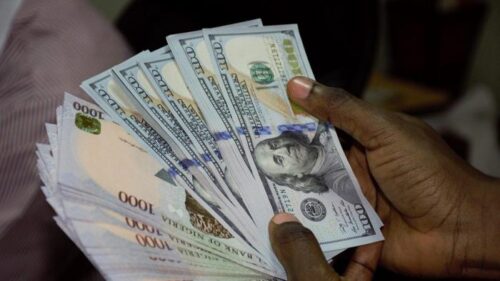The recent steadiness of the naira has been highlighted as a key factor in slowing the rate of imported inflation in Nigeria. Over the past few months, the currency’s reduced volatility has played a significant role in easing cost pressures on imported goods.
According to analysts at FBNQuest, this deceleration in imported food inflation stems from several factors. These include the naira’s improved stability in December, high foreign exchange (FX) costs that have reduced the incentive to import, and the government’s temporary 150-day import duty waiver on essential food items.
Although the overall impact of imported inflation on the headline inflation rate remains moderate, the trend shows promise. Data indicates that imported inflation fell to 41.29 percent year-on-year in December 2024, down from 42.29 percent in November, marking its first decline since September 2019.
Muda Yusuf, CEO of the Centre for the Promotion of Private Enterprise (CPPE), attributed this improvement to regulatory reforms and interventions by the Central Bank of Nigeria (CBN) in the forex market. He noted that the outlook for the naira in 2025 appears optimistic, bolstered by factors such as strengthened foreign reserves exceeding $40 billion, increased inflows from diaspora remittances and International Money Transfer Operators (IMTOs), and CBN’s enhanced ability to manage exchange rate volatility.
Further contributing to the stability are the proceeds from a $2 billion Eurobond and the successful issuance of a $500 million domestic dollar bond. Additionally, the CBN’s resolution of around $7 billion in legacy forex obligations has provided much-needed relief. On the demand side, the operational ramp-up of the Dangote and Port Harcourt refineries is expected to reduce import pressures, while the gradual recovery of the non-oil export sector is poised to boost forex inflows.
Naira’s Performance and Market Trends
In recent months, the naira has demonstrated resilience in the forex market, buoyed by key reforms and inflows. One noteworthy measure is the introduction of the Electronic Foreign Exchange Matching System (EFEMS), which has significantly enhanced the naira’s performance. Within a month of EFEMS implementation, the naira appreciated by N125 against the dollar. By January 3, 2025, the naira was trading at N1,535 to the dollar, an 8 percent improvement from N1,660 on December 2, 2024, when EFEMS was launched.
Daily trading in the official forex market has shown relative stability, with demand pressures easing. On Wednesday, the Nigerian Foreign Exchange Market (NFEM) quoted the dollar at N1,550, slightly higher than N1,549 on the previous day, according to CBN data.
Meanwhile, the parallel (black) market has seen some fluctuations. On Thursday, the naira depreciated by 1.2 percent, or N20, to N1,680 per dollar, down from N1,660 the previous day. Despite this, the broader market dynamics suggest that the naira remains on a stabilizing trajectory, supported by strategic reforms, improved forex inflows, and CBN interventions.
Looking Ahead
With sustained reforms, continued inflows, and measures to manage demand pressures, the naira is positioned to maintain its relative stability. This, in turn, will help mitigate imported inflation, providing some relief to consumers and businesses alike as the country moves toward economic recovery.



